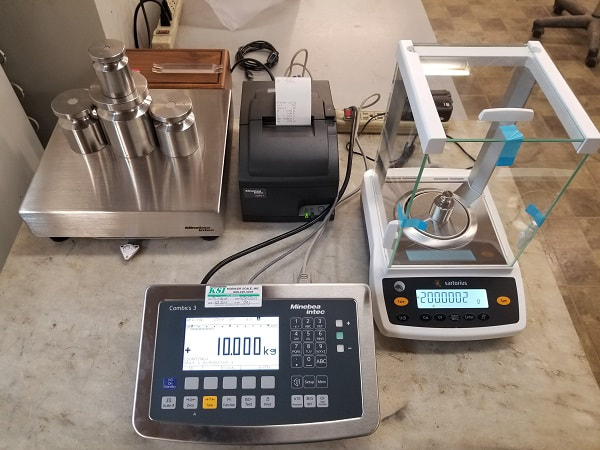
Image Source: Google
In the fast-paced world of retail, inventory management is crucial to the success of a business. Accurate and efficient tracking of inventory can make a significant difference in a company's bottom line. This is where inventory counting scales come into play, revolutionizing the way retail operations are conducted.
The Importance of Precision and Accuracy in Inventory Counting
Inventory counting is the process of physically counting and recording the quantity of products in stock. This task used to be done manually, which was not only time-consuming but also prone to errors. With the advent of inventory counting scales, retailers can now achieve a high level of precision and accuracy in their inventory management processes. If you need more information about inventory counting scale, you may visit here https://industrialscaleinc.com/product-line-categories/counting-scales/
Benefits of Precision and Accuracy in Inventory Counting:
- Prevention of stockouts or overstock situations
- Improved customer satisfaction due to accurate stock availability
- Reduction of shrinkage and loss due to better tracking of inventory
- Efficient ordering and restocking processes
How Inventory Counting Scales Work
Inventory counting scales are specialized scales designed to accurately weigh and count items. These scales use advanced technology to streamline the inventory counting process and provide precise results. Here is how inventory counting scales work:
Key Features of Inventory Counting Scales:
- High precision sensors for accurate weight measurements
- Counting function that calculates the quantity of items based on weight
- Memory storage for storing product information and counting data
- Connectivity options for integration with inventory management software
Steps in Using Inventory Counting Scales:
- Calibrate the scale to ensure accurate measurements
- Input the average weight of a single item for the scale to calculate the count
- Place a batch of items on the scale for counting
- Review the count displayed on the scale and compare it to the actual count
Benefits of Using Inventory Counting Scales in Retail Operations
The adoption of inventory counting scales in retail operations offers a wide range of benefits that can improve efficiency and accuracy in inventory management. Some of the key benefits include:
Enhanced Efficiency:
- Reduction of manual labor required for inventory counting
- Speedier counting process compared to manual methods
- Ability to count multiple items simultaneously
Improved Accuracy:
- Minimization of human errors in counting
- Consistent and reliable counting results
- Real-time tracking of inventory levels
Cost Savings:
- Reduction of labor costs associated with inventory counting
- Prevention of losses due to inventory discrepancies
- Optimization of inventory levels to avoid overstocking
Challenges in Implementing Inventory Counting Scales
While inventory counting scales offer numerous benefits to retail operations, there are also challenges that retailers may face when implementing this technology. It's important to be aware of these challenges to ensure a successful integration of inventory counting scales into the existing operations.
Common Challenges in Implementing Inventory Counting Scales:
- Initial cost of purchasing inventory counting scales
- Training employees on how to use the scales effectively
- Integration of inventory counting data with existing systems
- Ensuring regular maintenance and calibration of the scales
Future Trends in Inventory Management Technology
As technology continues to advance, the future of inventory management in retail looks promising. There are several emerging trends in inventory management technology that are expected to further revolutionize retail operations.
Future Trends in Inventory Management Technology:
- Use of artificial intelligence for predictive inventory management
- Integration of Internet of Things (IoT) for real-time inventory tracking
- Development of mobile apps for on-the-go inventory management
- Utilization of blockchain technology for secure and transparent inventory transactions
With the right technology and tools, retailers can enhance their inventory management processes, improve efficiency, and ultimately drive better business results.